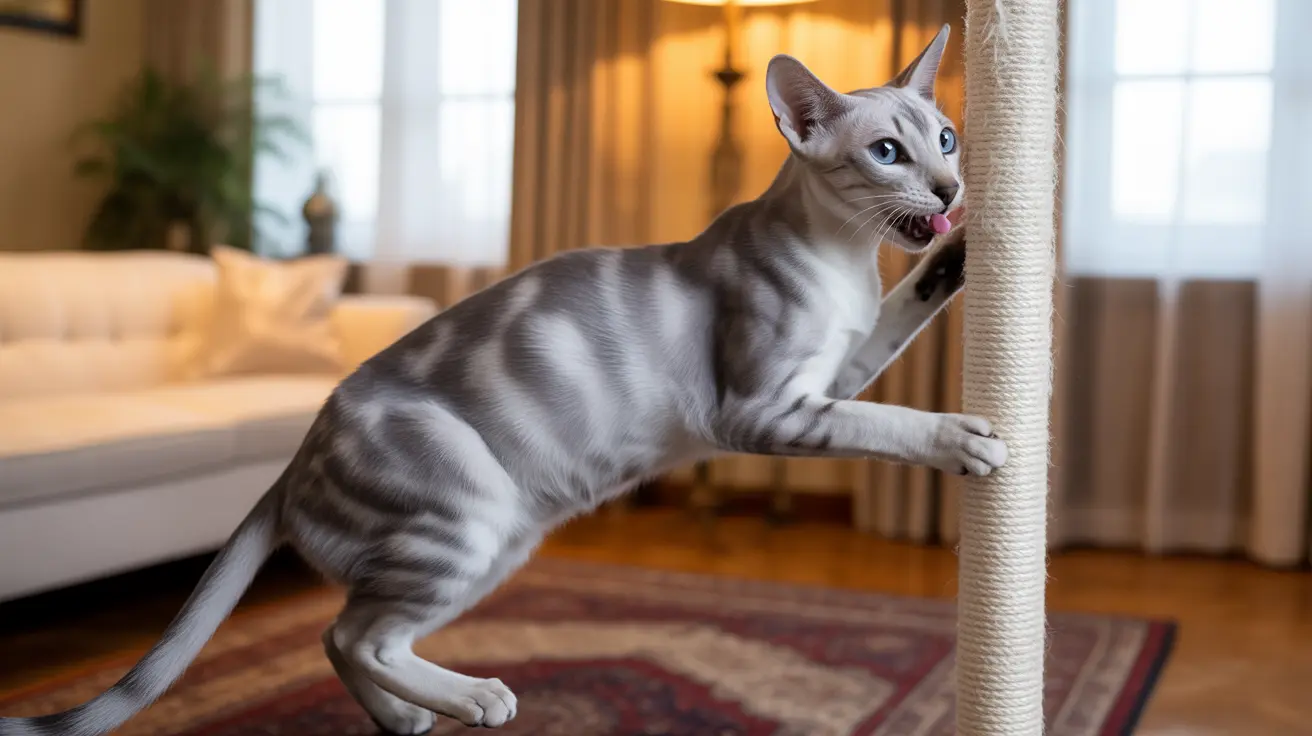If you've discovered your feline friend gnawing on electrical cords, you're not alone. This dangerous behavior is surprisingly common among cats, but it can have serious consequences. From electrical shocks to potential fires, wire chewing poses significant risks to both your pet and your home. This comprehensive guide will help you understand why cats chew wires and provide effective solutions to stop this hazardous habit.
Understanding Why Cats Chew Electrical Cords
Cats may chew on wires for various reasons, ranging from simple curiosity to underlying health issues. Young kittens often explore their environment through their mouths, while adult cats might chew due to boredom, stress, or dental problems. In some cases, particularly with Oriental breeds like Siamese cats, this behavior can be linked to a condition called pica, where cats compulsively eat non-food items.
Immediate Safety Measures to Protect Your Cat
The first step in preventing wire-chewing is to create a safer environment for your cat. Bundle loose cords using cord organizers or protective tubing specifically designed for pet households. Consider rerouting wires behind furniture or using cord covers treated with pet-safe bitter sprays to discourage chewing.
For temporary solutions, you can also:
- Unplug and store unused electronics
- Use cord concealment systems
- Install child-proof locks on cabinets containing electronics
- Cover exposed wires with heavy-duty cord protectors
Creating an Enriched Environment
A bored cat is more likely to engage in destructive behaviors like wire chewing. Enhance your cat's environment with:
- Interactive toys that simulate hunting
- Climbing towers and scratching posts
- Puzzle feeders for mental stimulation
- Window perches for environmental enrichment
- Regular play sessions (at least 20 minutes daily)
Addressing Medical Concerns
Sometimes, wire chewing can indicate underlying health issues. Schedule a veterinary check-up if your cat suddenly starts chewing wires or shows other behavioral changes. Your vet can check for:
- Dental problems or oral pain
- Nutritional deficiencies
- Gastrointestinal issues
- Anxiety or stress-related conditions
Training and Behavioral Modification
Positive reinforcement is key to redirecting your cat's chewing behavior. When you catch your cat approaching wires, immediately redirect their attention to appropriate chew toys. Reward them with treats and praise when they choose appropriate items to chew on. Consistency is crucial for successful behavioral modification.
Frequently Asked Questions
What are the safest and most effective ways to stop my cat from chewing electrical wires?
The most effective approach combines physical barriers (cord covers and management), environmental enrichment, and positive reinforcement training. Use pet-safe bitter sprays on protected cords while providing appropriate alternatives for chewing.
Why does my cat chew on cords, and could it be a sign of health problems?
Cord chewing can indicate various issues, including boredom, dental problems, nutritional deficiencies, or compulsive disorders like pica. If the behavior starts suddenly or persists, consult a veterinarian to rule out underlying health concerns.
How can I cat-proof my home to prevent damage and injury from chewing wires?
Cat-proof your home by using cord management systems, protective tubing, furniture arrangement to block access to wires, and bitter deterrent sprays. Consider wireless alternatives where possible and store unused electronics.
What alternatives or toys can I provide to redirect my cat's chewing behavior away from cords?
Offer specifically designed cat chew toys, dental treats, and interactive toys that engage their hunting instincts. Rotate toys regularly to maintain interest and provide various textures to satisfy their chewing urges.
When should I consult a veterinarian about my cat's wire-chewing habits?
Consult a veterinarian if the behavior begins suddenly, intensifies over time, or is accompanied by other behavioral changes. Immediate veterinary attention is required if your cat has chewed through a live wire or shows signs of electrical burns.
Conclusion
While cats chewing on electrical cords is a serious concern, it's a behavior that can be effectively managed through a combination of environmental management, enrichment, and proper training. By understanding the underlying causes and implementing appropriate solutions, you can keep your feline friend safe while protecting your home's electrical systems.






